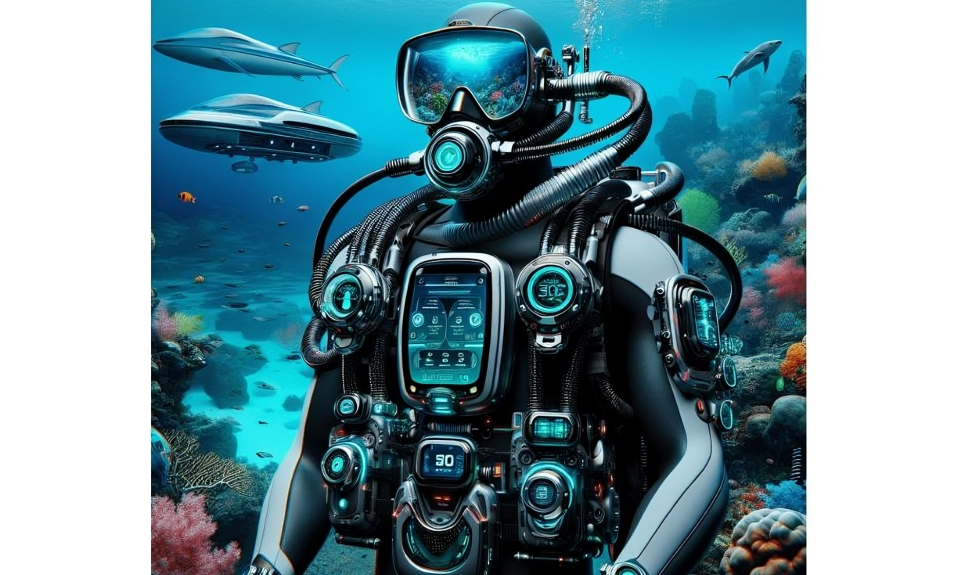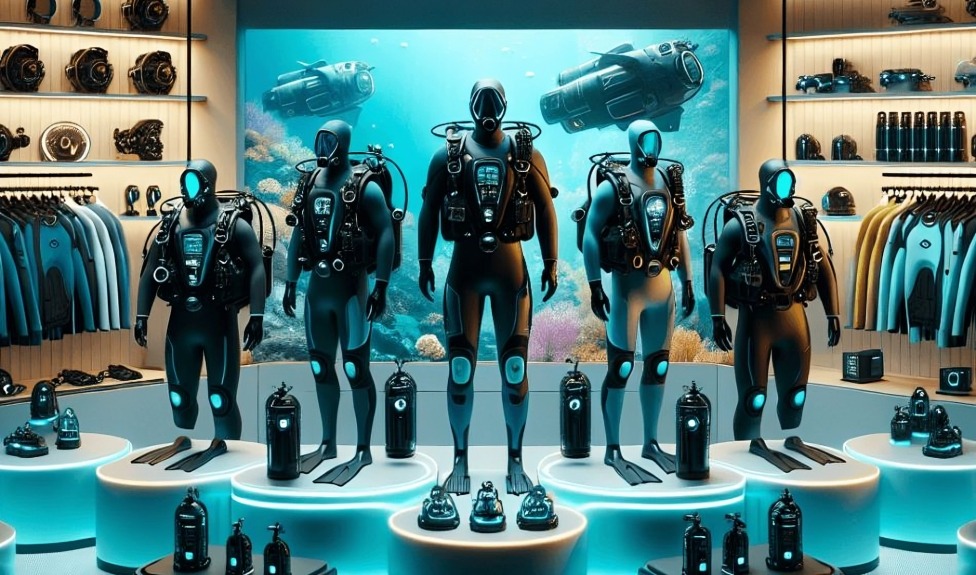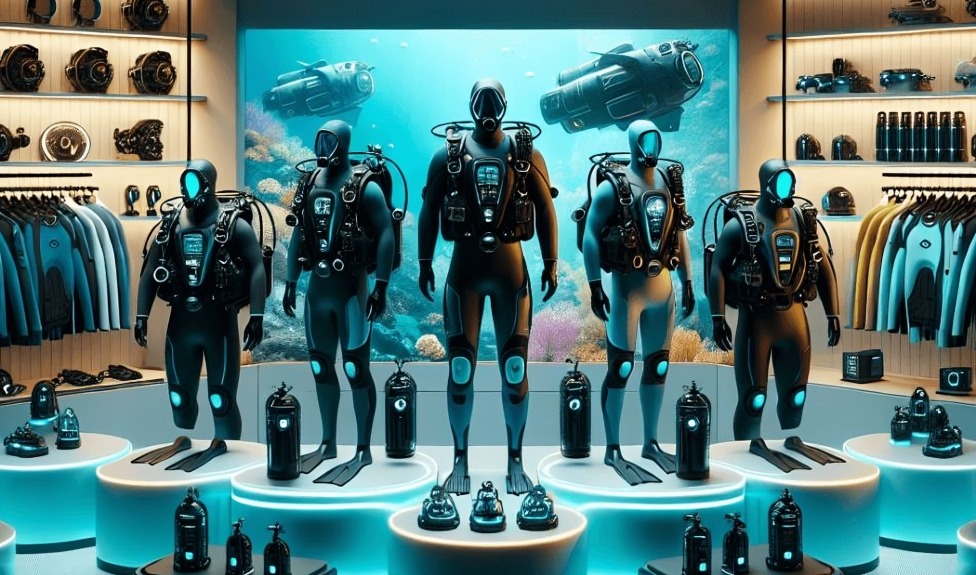Are you ready to explore ocean senses and scuba technology in 2024? This also marks the time when we will be exploring the most modern and futuristic findings in the field of underwater exploration. Technology leaps from state-of-the-art equipment to applied techniques will be the main theme of the show; we will explore the latest trends in ocean exploration. Get ready for the journey that takes you to the innovations performing miracles for your diving and the protection of our underwater world.

Citizen Science Diving: Be a Hero for the Oceans
Citizen scientist diving todays is not a niche type of activity anymore. Around the world, divers join research initiatives gathering important data that further fuels ocean conservation activities. Envision shooting back up from a spellbinding dive and uploading your discoveries to a global data pool that lets scientists track coral reef health, monitor fish populations, etc

Here are some ways you can become a citizen scientist diver:
Join a dedicated citizen science diving program: Various institution run structured programs to collect data by professional divers following the given protocols.
Utilize citizen science apps: Use mobile apps that facilitate recording and uploading your below water observations from the fish counts to the water clarity measures.
Partner with local dive operators: Dive shops happen to play a vital role in citizen science tasks. Try and find operators that support such like initiatives and ask the way you can participate.
Biohybrid Robotic Explorers
A new job was recently done at Caltech which is about developing biohybrid robot explorers modeled after marine species. These robots are built with ocean depth-trekking capabilities and are able to obtain data on marine life and oceanographic conditions. Through biomimicry, these robots can assume marine life’s appearance to avoid negatively impacting natural behavior.
Eco-Friendly Dive Equipment
As there are greater questions about the ecological effect of the conventional dive kit, there is an increasing demand for eco-friendly replacements in 2345. Goodbye to the huge, polluting diving gear that was once used. Eco-friendly divers are switching for sustainable gears that have minimal impression on the environment.

Recycled Materials: Look for fins, masks, and wetsuits made from recycled materials like plastic bottles or fishing nets. These innovative products offer high performance without compromising the environment.
Biodegradable Fins: These fins are made from plant-based materials that decompose naturally, minimizing landfill waste.
Rechargeable Dive Lights: Ditch disposable batteries and opt for powerful, rechargeable dive lights. This not only reduces waste but also saves you money in the long run.
Solar Chargers: Pack a solar charger on your dive trips. This allows you to power your dive computer, camera, and other equipment using the sun’s energy, a clean and sustainable source.
Advancements in Dive Computers and Technology
Dive computers and technology are advancing rapidly, offering divers new ways to explore the ocean. This year, we’re witnessing a surge in AI-powered dive computers that take your diving experience to the next level. Imagine a dive computer that:

Analyzes your gas consumption in real-time: Receive personalized ascent recommendations based on your breathing patterns, maximizing your dive time and ensuring a safe ascent.
Identifies potential risks: The computer might analyze your depth, nitrogen load, and dive profile, and alert you to potential decompression sickness risks.
Provides real-time marine life identification: Through image recognition technology, your computer might identify the marine life you encounter underwater, enhancing your learning experience.
Advancements in Underwater Communication Devices
The term “undefined” in ocean exploration means uncharted underwater areas where topography, marine life, and ecosystems are still unknown.
This lack of definition poses challenges and opportunities for marine conservation. Exploring these areas can lead to the discovery of new species, habitats, and threats to underwater ecosystems. This information can influence conservation strategies to protect these regions better. Advancements in diving technology in April 2024 could revolutionize underwater exploration.
Improved sonar systems and mapping capabilities can enhance safety and efficiency. New tools may allow divers to collect data and conduct research in ways not possible before. These advancements could shape the future of ocean exploration and conservation efforts.
Precise Seafloor Geophone Positioning
The exploration of oceanic resources through seismic methods requires precise seafloor geophone positioning. Traditional techniques have limitations, such as the influence of outliers, suboptimal use of precise observations, and inefficiency of real-time data processing
Cutting-edge technologies are advancing the accuracy and effectiveness of seismic exploration, empowering the precise location of underwater petroleum and natural gas reserves
Rebreathers Take Center Stage – Silent, Sustainable Dives
Rebreathers are closed-circuit breathing systems that recycle exhaled gas, minimizing bubble production and environmental impact. Traditionally complex and expensive, rebreathers are becoming more user-friendly and accessible. Here’s why rebreathers are gaining traction:
Reduced Environmental Impact: Rebreathers minimize the release of CO2 and nitrogen bubbles, making them a more eco-friendly diving option.
Silent Diving: The lack of bubbles allows divers to approach marine life more closely with minimal disturbance, offering unparalleled underwater encounters.
Extended Dive Times: Rebreathers offer significantly longer dive times compared to traditional open-circuit systems.
Virtual Reality Diving Experiences
Virtual reality (VR) is becoming increasingly popular in the scuba diving community, offering divers the opportunity to explore new dive sites and experience marine life in a more immersive way
Innovative VR technology is creating captivating educational experiences, empowering divers to explore new dive sites or dive alongside sharks, whales, and dolphins. VR is also advancing diver training, enabling divers to refine their skills and prepare for real-world dives.
Scuba Technology in 2024: Smart Scuba Gear
Advancements in wearable technology are revolutionizing the scuba diving experience, offering divers enhanced safety, comfort, and connectivity underwater. In April 2024, smart scuba gear equipped with sensors, cameras, and augmented reality displays is gaining popularity among diving enthusiasts. These innovative devices provide real-time feedback on vital signs, underwater navigation assistance, and immersive underwater experiences, transforming the way divers explore the depths of the ocean.
Ocean Sensing Technologies

In April 2024, advancements in ocean sensing technologies will provide new insights into the health and dynamics of marine ecosystems. From underwater drones equipped with environmental sensors to satellite-based monitoring systems. These cutting-edge technologies are revolutionizing our understanding of ocean processes, climate change impacts, and biodiversity hotspots. Ocean sensors inform conservation efforts by providing real-time data on water quality, temperature, and marine life.
New Dive Destinations and Experiences
As travel technology and reach improve, new dive destinations and experiences are becoming more accessible to divers. The Pacific Ocean, for example, is full of remote dive locations that are becoming more accessible through liveaboard bookings and online ticket purchases
This trend is expected to continue, offering divers the opportunity to explore more of the planet’s remote diving hot spots.
Conclusion
The ocean sense and scuba technology trends for 2024 are focused on innovation, sustainability, and immersive experiences. From biohybrid robotic explorers to wearable sensors for climate science, these trends are shaping the future of ocean exploration and scuba diving. By embracing these trends, divers can explore the ocean in new and exciting ways while also contributing to climate science research and promoting environmental sustainability.

